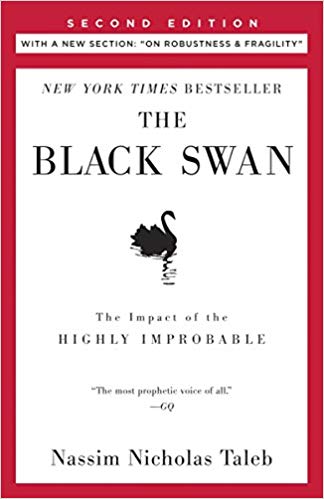

This article is an excerpt from the Shortform summary of "The Black Swan" by Nassim Taleb. Shortform has the world's best summaries of books you should be reading.
Like this article? Sign up for a free trial here .
What are some of the greatest accidental discoveries in science that changed the world? How did they happen?
We’ll cover some of the most life-changing accidental discoveries, from penicillin to the cosmic microwave background, and discuss why the most profound discoveries are often the ones that are inadvertent.
Accidental Discoveries in Science: Why We Can’t Know What We’ll Know
Epistemic arrogance, the pretensions of “experts,” our ever-increasing access to information—all belie an incontrovertible fact: In many, perhaps even most, areas of our lives, prediction is simply impossible.
Take scientific discoveries, for example. At any given moment, there are scores of scientists, scholars, researchers, and inventors around the world working diligently to better our lives and increase our knowledge. But what often goes unremarked is that the discoveries with the most profound impact on our lives are inadvertent—random—rather than the reward for careful and painstaking work.
What are some of the greatest accidental scientific discoveries?
Accidental Discovery in Science #1: Penicillin
The discovery of penicillin is a case in point. Biologist Alexander Fleming left a stack of cultures sitting out in his laboratory while he went on vacation, and when he returned, a bacteria-killing mold had formed on one of the cultures. Voila!—the world’s first antibiotic.
Accidental Discovery in Science #2: Cosmic Microwave Background
The same goes for the discovery of the cosmic microwave background, the omnipresent radiation in space that provides a key piece of evidence for the Big Bang. No researcher had any idea it existed until two radio astronomers noticed a hiss in their listening devices. How unexpected was their discovery? At first, the astronomers thought the hiss was caused by pigeon droppings on their antenna!
Because earth-shattering discoveries are unexpected or inadvertent, their importance, at least in the beginning, often goes unrecognized. When Darwin presented his findings at the Linnean Society, the 19th-century’s preeminent institution of natural history, its president dismissed the theory as “no striking discovery.”
The Scientific Grounds for Uncertainty
The fact that accidental scientific discoveries are often the most impactful to society throws into question the idea of the value of scientific predictions. If the best discoveries are accidents, is there value to uncertainty?
The innovator of the scientific method of “falsification,” Karl Popper, also proposed an influential theory of history. The theory held that, because technological advance was “fundamentally unpredictable,” so too was the course of history.
Popper’s theory is echoed by a key law in statistics called “the law of iterated expectations.” The law describes a situation when to predict something means to already know that something.
Think, for example, of the invention of the wheel. If a primitive human were to predict the invention of the wheel, that human would already know enough about the wheel to invent it him- or herself.
The same condition applies to contemporary predictions of scientific discoveries. For example, some have predicted that carbon-capture technology will solve global warming. But to make that prediction, one has to know the specifications of that technology—that is, one has to know already how to create it (and thus how to stop global warming now). In other words, if we don’t know exactly how a certain technology will be created, we can’t make the prediction that the technology will be created.
Accidental Discovery in Science #3: Black Swans
For millennia, it was universally accepted that all swans were white. In fact, this truth was so incontrovertible that logicians would often use it to illustrate the process of deductive reasoning. That classic deduction went like this:
- All swans are white
- The bird is a swan
- The bird is white
But in 1697, Willem de Vlamingh, a Dutch explorer, discovered black swans while on a rescue mission in Australia—and, in an instant, a universal, incontrovertible truth was shown to be anything but.
This accidental discovery in science not only changed our knowledge of swans, but also changed how we think in general. After Vlamingh’s discovery, philosophers used the term “black swan” to describe a seeming logical impossibility that could very well end up being possible.
———End of Preview———

Like what you just read? Read the rest of the world's best summary of "Black Swan" at Shortform . Learn the book's critical concepts in 20 minutes or less .
Here's what you'll find in our full Black Swan summary :
- Why world-changing events are unpredictable, and how to deal with them
- Why you can't trust experts, especially the confident ones
- The best investment strategy to take advantage of black swants






